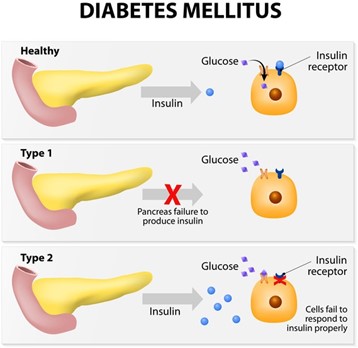Which finding indicates to the nurse that the current therapies are effective for patient with acute adrenal insufficiency (Addison's)?
Increasing serum sodium levels.
Decreasing serum chloride levels
Decreasing blood glucose levels
Increasing serum potassium levels
The Correct Answer is A
In acute adrenal insufficiency, also known as Addison's disease, the adrenal glands are unable to produce enough cortisol and aldosterone hormones. These hormones play an important role in regulating sodium and potassium levels in the body. Therefore, a patient with acute adrenal insufficiency may have low sodium and high potassium levels in their blood.
The goal of therapy is to replace the deficient hormones and normalize the electrolyte levels in the body. If the current therapies are effective, the nurse would expect to see an increase in the patient's serum sodium levels because of aldosterone replacement therapy. Therefore, option a is the correct answer.
Decreasing serum chloride levels and decreasing blood glucose levels are not directly related to the treatment of acute adrenal insufficiency. In fact, a patient with acute adrenal insufficiency may have low serum chloride levels and low blood glucose levels due to the lack of cortisol hormone.
Increasing serum potassium levels would be an indicator of ineffective treatment or inadequate aldosterone replacement therapy, as aldosterone helps to regulate potassium levels in the body.
Nursing Test Bank
Naxlex Comprehensive Predictor Exams
Related Questions
Correct Answer is B
Explanation
Glycosylated hemoglobin (HbA1c) is a measure of the average blood glucose levels over the past 2-3 months. An HbA1c level of less than 7% is associated with a reduced risk of microvascular and macrovascular complications in patients with diabetes. This is a critical goal because uncontrolled blood glucose levels can lead to complications such as neuropathy, nephropathy, retinopathy, and cardiovascular disease.
While options a, c, and d are also important in the management of diabetes, they are not as critical as achieving glycemic control. Choosing a diet that distributes calories throughout the day can help regulate blood glucose levels and prevent hypoglycemia. Following a diet and exercise plan that results in weight loss can also help improve glycemic control and reduce the risk of complications. Understanding the reasons for eliminating simple sugars in the diet is important for overall diabetes education, but it is not the most important goal in the plan of care for this patient at this time.

Correct Answer is ["A","D","E"]
Explanation
Option A indicates that the client understands the timing of glyburide administration, which is typically taken with the first bite of a meal to aid in glucose control.
Option d indicates that the client understands the importance of continuing antidiabetic medications even when they are sick. Skipping doses during illness can lead to uncontrolled blood glucose levels.
Option e indicates that the client understands the importance of foot care in preventing complications related to peripheral neuropathy, such as diabetic foot ulcers.
Option b is incorrect because patients with peripheral neuropathy should not walk barefoot, as they may not feel injuries to their feet, which can lead to diabetic foot ulcers and other complications.
Option c is incorrect because antidiabetic medications do not allow patients to eat whatever they desire. Patients with diabetes need to follow a healthy diet and exercise plan to manage their blood glucose levels effectively.

Whether you are a student looking to ace your exams or a practicing nurse seeking to enhance your expertise , our nursing education contents will empower you with the confidence and competence to make a difference in the lives of patients and become a respected leader in the healthcare field.
Visit Naxlex, invest in your future and unlock endless possibilities with our unparalleled nursing education contents today
Report Wrong Answer on the Current Question
Do you disagree with the answer? If yes, what is your expected answer? Explain.
Kindly be descriptive with the issue you are facing.
